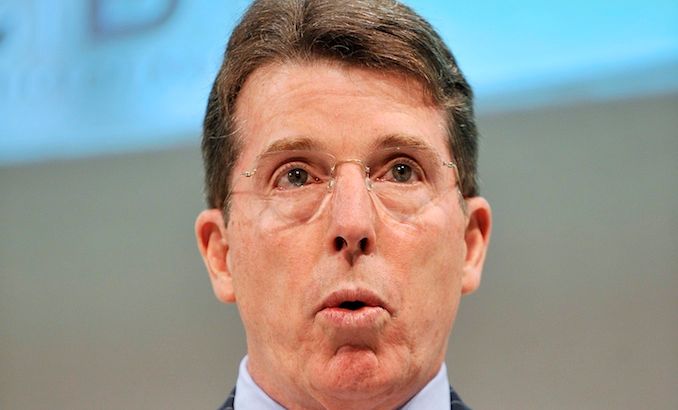UK’s Cameron calls for full probe of Barclays
Bank’s chief admits submitting false data to protect firm’s reputation during crisis, as scrutiny increases on UK banks.

British Prime Minister David Cameron has kept up pressure on Barclays chief executive Bob Diamond, saying that probes into allegations of inter-bank rate manipulations must be seen through to the end.
“It is vital that all investigations under way get to the bottom of what has happened, it is vital that they go wherever the evidence leads and hold those responsible to account without fear or favour,” Cameron told a press conference on Friday.
Keep reading
list of 4 itemsChina’s economy beats expectations, growing 5.3 percent in first quarter
Inside the pressures facing Quebec’s billion-dollar maple syrup industry
Manipur’s BJP CM inflamed conflict: Assam Rifles report on India violence
He spoke as European Union leaders wrapped up a two-day summit meeting that had explored the creation of a single supervisory body for banks across the 17-nation eurozone, of which Britain is not a member.
“We know what needs to be done, let’s get on and take those actions … in terms of accountability, regulation, taxation, transparency, behaviour, punishment for things that are done wrong, on every one of those actions is required,” Cameron said.
Traders at the bank are suspected of manipulating interbank lending rates, which play a major role in international financial markets and affect businesses and consumers.
Other British banks might be caught up in the affair, and Cameron reiterated his intention to bring Diamond and others at Barclays to account.
“I think he and frankly the whole management team have got some very serious questions to answer,” the British leader said.
‘Wrong’ admitted
Diamond said the bank submitted false data on borrowing costs during the credit crisis in 2007 and 2008 to protect it from suspicions that it was in trouble, a decision he said was wrong.
Diamond set out a partial defence of the bank’s behavior in a letter to Britain’s House of Commons Treasury Committee, which released it on Friday.
His statement comes two days after US and British agencies fined the firm $453m for submitting false data used in setting the London interbank offer rate (LIBOR), a key market index, between 2005 and 2009. Individual employees could still face criminal prosecution in the United States.
Barclays is one of several global banks that regularly submit a report on what they think short-term interest rates will be.
The British Bankers’ Association uses those reports to establish the LIBOR rates, which are used to price trillions of dollars in loans and mortgages worldwide.
Barclays deliberately set its reports for those rates low during the credit crisis, Diamond wrote, because if the real numbers were higher than those reported by other banks, it would appear that Barclays was in trouble and was compelled to pay more to borrow.
“Even taking account of the abnormal market conditions at the height of the financial crisis, and that the motivation was to protect the bank, not to influence the ultimate rate, I accept that the decision to lower submissions was wrong,” Diamond wrote.
Diamond was head of Barclays Capital, the investment banking unit, in 2007 and 2008 and John Varley was the chief executive. He said the bank was reviewing the conduct of all the employees involved. Sanctions could include withholding bonuses, up to dismissal, he said.
Royal Bank of Scotland could also face hefty fines for engaging in the same practices, the Times newspaper reported.